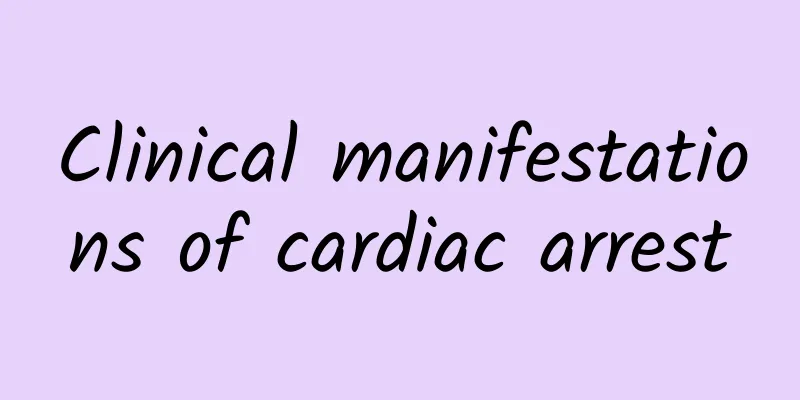Why do I always feel my heart beating fast?

|
The average person's heart beats 60-100 times per minute in a normal resting state. Sometimes the heart beats suddenly very fast. It may be due to changes in weather conditions, mood, emotions, stress, diet, etc. It may also be due to accelerated hyperactivity of the vagus nerve. You can monitor yourself. If your heart rate is within the normal range, you don’t need to be too anxious or worried. If it is beyond the normal range, you need to go to the hospital for targeted examinations. A fast heartbeat is what we call tachycardia in medicine. When an adult's heart rate exceeds 100 beats per minute, it is called tachycardia. Tachycardia is generally divided into two types: physiological and pathological. Physiological tachycardia is when the heart rate increases, for example when running, drinking, doing heavy physical labor, or being emotionally excited. This is generally called physiological tachycardia. Generally, the heart rate will return to normal after rest, and no treatment is needed. There is also fever, high fever, anemia, hyperthyroidism, bleeding, pain, or hypoxia, heart failure, heart disease, etc. These are pathological tachycardia and require relevant examinations. If the cause is heart disease, an electrocardiogram and echocardiogram should be done. If it is due to other reasons, routine blood tests, thyroid function and biochemical electrolyte tests, etc. should be done. Only in this way can we determine the cause of the tachycardia and provide targeted treatment. Eat fruits, vegetables, lean meat, soy products, etc. Avoid greasy, raw, cold, salty and spicy foods, and avoid tobacco and alcohol. People of different ages have different heart rates. The younger the age, the faster the heart rate. If the heart rate exceeds the normal range, it is called a tachycardia. The accelerated heart rate caused by illness is most common when you have a fever. For every 1°C increase in body temperature, the heart rate can increase by 10 to 15 beats per minute. Therefore, diseases that can cause fever will often result in an accelerated heart rate, but typhoid patients are an exception. The pulse of typhoid patients is relatively slow, which is called a relatively slow pulse. This is an important characteristic of typhoid. Pneumonia, asthma and other diseases affect heart function. When heart failure occurs, there will be symptoms such as rapid heart rate, rapid enlargement of the liver, rapid breathing, and blue lips. In children with severe anemia, the heart rate will also increase to meet the body's need for blood supply. A fast heart rate may also occur when taking drugs such as atropine and epinephrine. Diseases of the heart itself, such as myocarditis, pericarditis, etc., can also increase the heart rate. A fast heart rate will generally return to normal as external factors are eliminated and the disease improves (such as fever subsiding, anemia improving, and heart function returning to normal). When taking medications that can affect your heart rate, be aware of your heart rate. If your heart rate continues to be too fast, you should consult a doctor. The normal pulse rate of an adult at rest is 60-100 times, it may vary with factors such as age, gender, labor and mood. Generally, women speed up faster than men, young children speed up faster than adults, and the elderly speed up slower. It may speed up temporarily during exercise or emotional excitement, and slow down during rest and sleep. An adult's pulse rate of more than 100 beats per minute is called a tachycardia. On the contrary, a pulse less than 60 beats per minute is called a bradycardia. You can lie in bed, feel your pulse, and count for one minute to see how it goes. Don't get too nervous when counting. Young man, it should be fine. If your heart rate is 114 beats per minute when you are at rest, it is a fast heart rate, also called a tachycardia. An increased heart rate is just a symptom, not a disease. It has many causes, such as anemia, infection, fever, hyperthyroidism, etc. |
<<: I can't sleep at noon and my heart is beating very hard
>>: Heart rate increases after taking diet pills
Recommend
Daily conditioning is essential for the treatment of neurasthenia
Under the influence of tremendous work and life p...
What to do if you have bloating and constipation
The phenomenon of abdominal bloating and constipa...
Little finger numbness
I believe that you must have encountered numbness...
Pain around belly button
The most common pain around the navel is the clin...
Why does it hurt when I press my breasts?
For women, if there is tenderness on both sides o...
Effects and points of action of Scutellaria baicalensis
Bupleurum is a kind of traditional Chinese medici...
Huoxiang Neijin Pills
When it comes to Huoxiang Neijin Pills, many peop...
What causes flatulence and farting?
What causes abdominal bloating and farting? This ...
Saffron Grades
Saffron, also known as crocus, actually has a ver...
How to treat localized emphysema
When it comes to how to treat localized emphysema...
Effects of Jade Leaf Golden Flower Heat-clearing Tablets
Yuyejinhua Qingre Tablets is a common Chinese med...
What are the benefits of dandelion foot bath?
The pregnancy period and postpartum recovery peri...
What is gastric triple therapy?
Gastrointestinal diseases are usually caused by H...
How to inject buttocks
Generally speaking, people with colds and fevers ...
Difference between milia and eczema
Milia and eczema are actually very common skin di...









